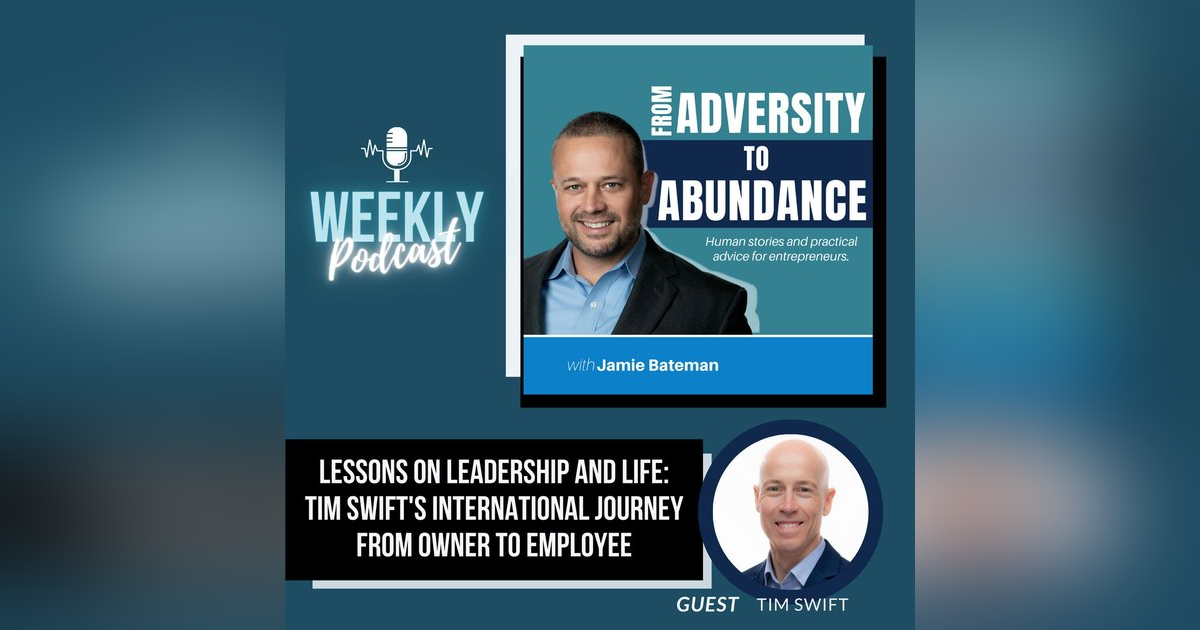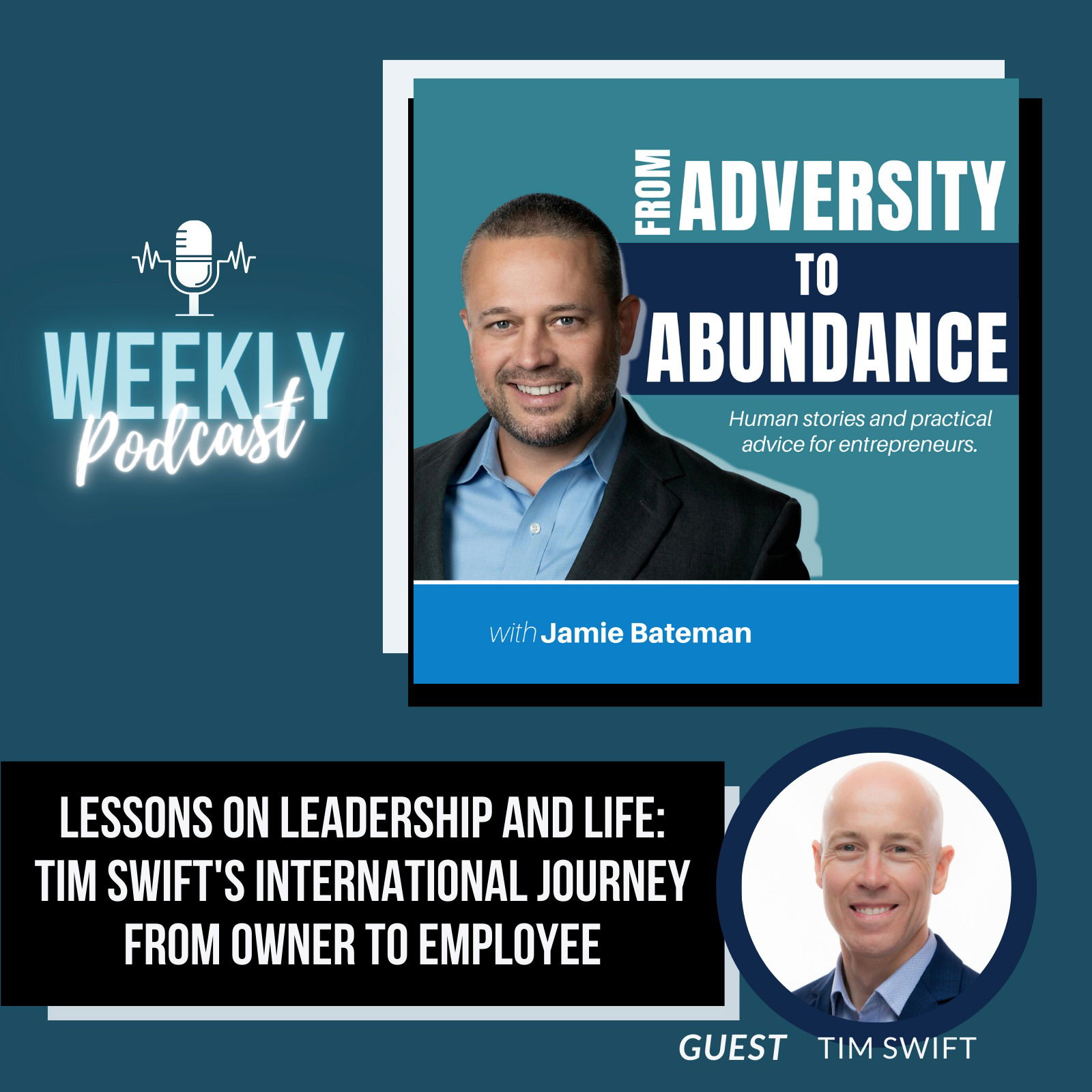Lessons on Leadership and Life: Tim Swift's International Journey From Owner to Employee


Do you want to achieve a harmonious blend of business success and personal fulfillment? Are you searching for a solution to strike the perfect balance in your entrepreneurial journey? Personal fulfillment chaser turned business guru, Tim Swift, is our cherished podcast guest this week. Hailing from Australia's outback to the vibrant urban landscapes of America, Tim carries a diverse professional experience. His entrepreneurial journey was kick-started as a small business owner, where he successfully supervised a financial advisory firm. Through this adventure, he discovered the true meaning of helping others by exposing and educating them on financial literacy. Now, he graces us with his charm as an executive vice president of business affairs for a U.S.-based media company. His story is an embodiment of resilience, an enrapturing journey of transforming personal gratification into business triumph. Tim is also a volunteer of We Are Open Circle, a non-profit organization that essentially serve those that are serving people at the front lines.
“Sometimes when you actually go down a fork in the road, it's okay to stop and realize that that's not the route that you want to take. You can simply back up and then go down the other fork in the road knowing full well that, hey, I explored that path. It doesn't mean that it was bad. It just means, okay, that's not the right road to actually take for me.”
Books and Resources
How Will You Measure Your Life?
Atomic Habits: An Easy & Proven Way to Build Good Habits & Break Bad Ones
Connect with Tim Swift:
LINKEDIN: https://www.linkedin.com/in/timdonswift/
FOR SPORTING ORIENTED: https://www.strava.com/
Haven Financial:
https://www.myfinancialhaven.com/jamiebateman/
ATTENTION:
Unlock the secrets to a transformative life with “From Adversity to Abundance: Inspiring stories of Mental, Physical and Financial Transformation”. Buy your copy now and embark on a journey from challenges to triumphs!
AMAZON: https://www.amazon.com/dp/B0CGTWJY1D?ref_=pe_3052080_397514860
Connect with us
WEBSITE: https://www.adversity2abundance.com
Leave us a rating or review: https://www.adversity2abundance.com/reviews/new/ or here
Got comments, feedback or suggestions? We’d love to hear it! https://www.adversity2abundance.com/contact/
Follow From Adversity to Abundance Podcast
FACEBOOK: https://www.facebook.com/profile.php?id=100089126144055
INSTAGRAM: https://www.instagram.com/adversitytoabundancepodcast/
LINKEDIN: https://www.linkedin.com/company/89949391/admin/feed/posts/
YOUTUBE: https://www.youtube.com/@FromAdversity2AbundancePodcast
Connect with Jamie
BOOK: From Adversity to Abundance: Inspiring Stories of Mental, Physical, and Financial Transformation
LINKEDIN: https://www.linkedin.com/in/jamie-bateman-5359a811/
TWITTER: https://twitter.com/batemanjames





